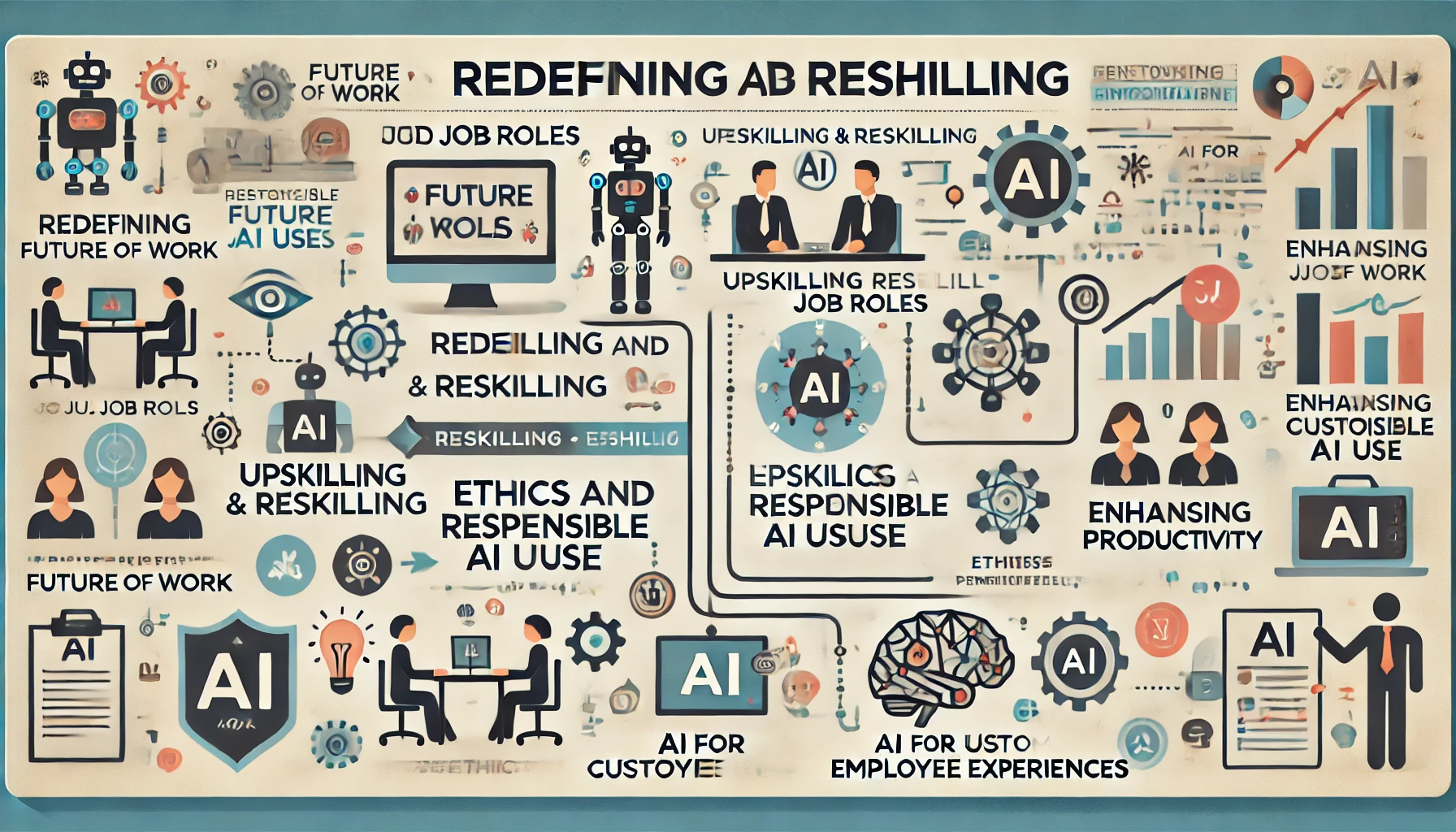This topic is highly relevant, as generative AI tools like ChatGPT, DALL-E, and others are transforming how we work and interact with technology.
Key Insights on Generative AI and Work:
1. Redefining Job Roles
- Generative AI is automating many routine tasks, which allows professionals to focus more on creative and strategic work. In fields like marketing, content creation, and software development, AI can assist in ideation, drafting, and even coding.
- As generative AI tools handle more low-level tasks, roles that require a deep understanding of AI and its applications are growing. This shift is pushing companies to hire more AI specialists, data analysts, and product managers with technical expertise.
2. Upskilling and Reskilling
- As generative AI tools evolve, workers are increasingly expected to adapt. Many industries are investing in upskilling and reskilling programs to equip employees with the skills to work alongside AI effectively.
- Skills like AI literacy, data analysis, and ethical considerations in AI usage are becoming crucial across all sectors, not just tech.
3. Ethics and Responsible AI Use
- With generative AI’s rapid adoption comes a need to address ethical concerns. Companies are prioritizing transparency, data privacy, and minimizing bias in AI models.
- AI governance is emerging as a critical area, where organizations establish guidelines for responsible AI use. This focus is especially relevant for industries like healthcare, finance, and law, where the misuse of AI can have far-reaching consequences.
4. Enhancing Productivity and Creativity
- Generative AI tools are enhancing productivity by automating repetitive work, such as drafting emails or generating code. Tools like GitHub Copilot and ChatGPT are prime examples of this productivity boost.
- Additionally, AI is enhancing creativity by helping people brainstorm ideas, create art, and explore innovative solutions faster than ever before. It’s a collaboration between human creativity and AI’s ability to generate vast amounts of data-driven content.
5. AI for Customized Employee Experiences
- AI is being used to tailor workplace experiences and optimize workflows. For instance, some companies are using AI to personalize learning paths for employees or streamline HR processes, making onboarding and career growth more engaging and efficient.




